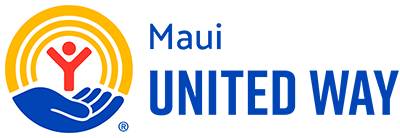
Our mission is to advance and nurture the well-being of our Maui, Molokaʻi, and Lānaʻi community through impactful, equitable, and sustainable initiatives.
Since the devastating August 2023 wildfires, Maui United Way has allocated over $12.9 million to support fire-impacted individuals and organizations across Maui County. This includes the rapid distribution of $7.8 million in direct emergency financial assistance to nearly 8,000 survivors and $5,132,114 in grants and initiatives to nonprofits offering services like food security, transportation, housing support, crisis counseling, childcare, and culturally rooted healthcare. Maui United Way also leads key initiatives such as the $1 million Sentry Mālama Nā Keiki program, supporting displaced children with trauma-informed care, and the ʻOhana Mental Health Grant program, which invested $649,500 in prevention and intervention services for keiki to kūpuna.
In addition to funding immediate needs, MUW continues to drive long-term recovery through strategic investments and partnerships. We’ve contributed $250,000 to help launch Hoʻōla Iā Mauiakama, Maui’s Long Term Recovery Group, provided $178,000 for rebuilding a playground and art spaces at King Kamehameha III School, and enhanced food systems through programs like Meaʻai Pono and Keiki ʻAi ʻĀina. Our team supports the 2-1-1 helpline, facilitates grant-writing workshops, promotes data-driven decision-making, and collaborates on a county-wide community needs assessment. As housing insecurity, financial strain, and mental health challenges deepen, Maui United Way remains steadfast in its mission—uniting people, resources, and aloha to do more good for Maui’s most vulnerable.
